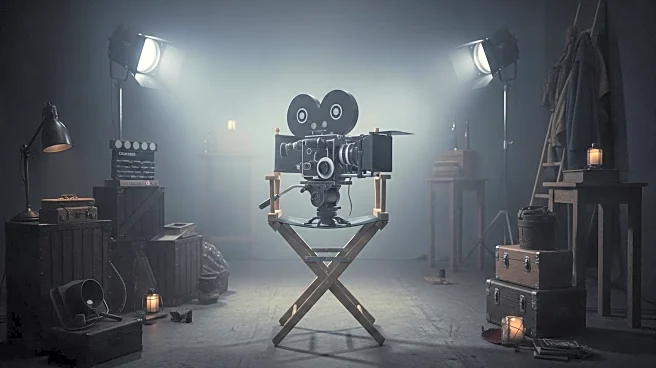What's Happening?
Austin Butler, known for his intense method acting, is taking his commitment to his latest role in 'Caught Stealing' to new heights by sleeping on the set designed to be his character's apartment. Butler plays Hank, an ex-baseball player turned bartender, in the thriller directed by Darren Aronofsky. To embody the character authentically, Butler spent a night in the set apartment, engaging in activities like playing music and eating Chinese food to make it feel like a real living space. This approach is part of Butler's broader strategy to maintain the illusion of reality in filmmaking, despite the artificial environment of a movie set. The film, set in the 1990s, follows Hank as he becomes embroiled in a conflict involving the police, the Russian mob, and Hasidic hitmen over a mysterious key.
Why It's Important?
Butler's dedication to his craft highlights the lengths actors go to deliver authentic performances, which can significantly impact the film's reception and audience engagement. His method acting approach may enhance the film's realism, potentially attracting viewers who appreciate character-driven narratives. Additionally, the film's setting in the 1990s offers a nostalgic appeal, tapping into a cultural moment before the digital age transformed communication and entertainment. This could resonate with audiences longing for simpler times, thereby broadening the film's appeal.
What's Next?
As 'Caught Stealing' approaches its release date, anticipation builds around Butler's performance and the film's unique narrative style. The film's success could influence future projects, encouraging filmmakers to explore similar immersive techniques and period settings. Audience reactions and box office performance will likely determine the viability of such approaches in Hollywood's evolving landscape.
Beyond the Headlines
The film's exploration of miscommunication in a pre-digital era may offer insights into contemporary issues of connectivity and isolation. By revisiting a time when communication was less instantaneous, the film could provoke discussions about the impact of technology on human relationships and societal dynamics.









